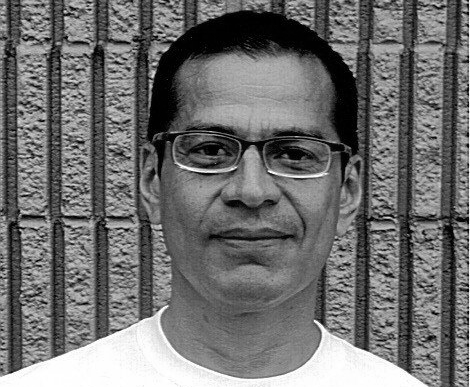Hawai'i State Representative David Tarnas Introduces Legislation to Create a State-Initiated Process to Expunge Cannabis Records
Statement from Sarah Gersten
Executive Director and General Counsel
Last Prisoner Project
RE: Representative David Tarnas Introduces Legislation to Create a State-Initiated Process to Expunge Cannabis Records
January 18, 2024
The War on Drugs and the criminalization of cannabis have created a racially inequitable criminal legal system that has disproportionately impacted people of color, including Native Hawaiians. We at the Last Prisoner Project (LPP) believe that no one should suffer the collateral consequences of cannabis criminalization. We commend Representative David Tarnas for working with us to introduce
HB 1595, which will begin to address the injustices perpetrated during cannabis prohibition through the creation of a state-initiated expungement process for individuals with a criminal record for cannabis possession.
When an individual has a criminal record for cannabis, the collateral consequences linger for a lifetime without access to expungement. Individuals with a criminal record are often restricted from employment, housing, political participation, public assistance, education, and more. These restrictions hinder the wellbeing and safety of entire communities, particularly communities of color who have been systematically targeted by law enforcement during cannabis prohibition. A key finding from a 2018 Office of Hawaiian Affairs report on prison reform highlighted the disproportionate incarceration rate of Native Hawaiians, who constitute 37% of the adult incarcerated population while making up just 18% of the state’s adult population.
The Last Prisoner Project (LPP) has worked in Hawai’i for the past two years to ensure that retroactive relief is provided for those who have been criminalized by prohibition. In 2022, LPP presented
evidence-based policy recommendations that were endorsed by Hawaii’s Dual Use of Cannabis Task Force. LPP’s recommendations outlined state-initiated processes to provide retroactive relief for individuals with cannabis convictions and led to LPP being named in
Concurrent Resolution No. 51/House Resolution No. 53, which urged Governor Green to initiate a clemency program for individuals who are still under supervision for a cannabis conviction.
A key component of HB 1595, is that it does not get ahead of the state on the question of legalizing adult-use cannabis, nor does it rely on the state passing a legalization bill. Instead, the bill intends to close the uptake gap between people who have a criminal record for cannabis possession and are already eligible for expungement under existing law but have been unable to obtain relief.
National research shows that less than 6.5% of people who are already eligible for an expungement ever have their records expunged because of the cumbersome nature of the record clearance process. Representative Tarnas’ bill will address this issue by having the Attorney General’s Office initiate an expungement process for individuals with a criminal record for cannabis possession, an offense which was decriminalized in 2019 and poses no threat to public safety. In fact, the creation of a state-initiated record clearance process promotes public safety by expanding access to employment, housing, and educational resources that allow for community reintegration and stability. Empirical data demonstrates that five years after benefitting from record clearance, individuals are actually less likely than members of the general public to engage in criminal conduct.
“As the legislature contemplates the legalization of cannabis for adult use, I believe the state has an obligation to update our criminal justice system to ensure that individuals who continue to suffer the consequences of an outdated law have an opportunity to finally move on with their lives. HB 1595 is limited to one offense with a defined population and allows for a reasonable and limited expansion of the existing expungement process,” said Representative David Tarnas.
“While some may consider a simple possession charge a “minor” criminal offense, having a criminal record is anything but minor. It limits a person’s ability to obtain an education, employment, housing, and public assistance. We know the petition process is broken. Creating a procedure that allows the state to start the process on behalf of the individual is imperative to actually provide the relief Hawai’i has already decided these individuals deserve,” said Sarah Gersten, Executive Director and General Counsel at the Last Prisoner Project.
Prior to 2019, simple possession of cannabis could have landed someone in jail. Even for those lucky enough to avoid that penalty, their arrest still generated a criminal record along with numerous collateral consequences. HB 1595 ensures that individuals who continue to suffer the consequences of a penalty the state changed its mind about enforcing in 2019 are applied evenly so no one is left behind. We urge the Hawaiʻi State Legislature to support HB 1595 to provide retroactive relief for individuals criminalized by cannabis possession and begin to dismantle the racial injustices that the criminal legal system has perpetuated during prohibition.
ABOUT LAST PRISONER PROJECT
The Last Prisoner Project is dedicated to freeing those incarcerated due to the War on Drugs, reuniting their families, and helping them rebuild their lives. As laws change, there remains a fundamental injustice for individuals whose conviction is no longer a crime. We work to repair these harms through legal intervention, constituent support, direct advocacy, and policy change.
Visit
www.lastprisonerproject.org or text FREEDOM to 24365 to learn more.






